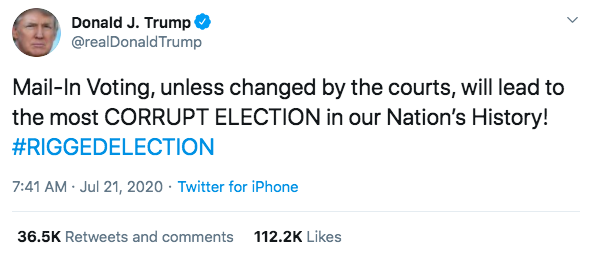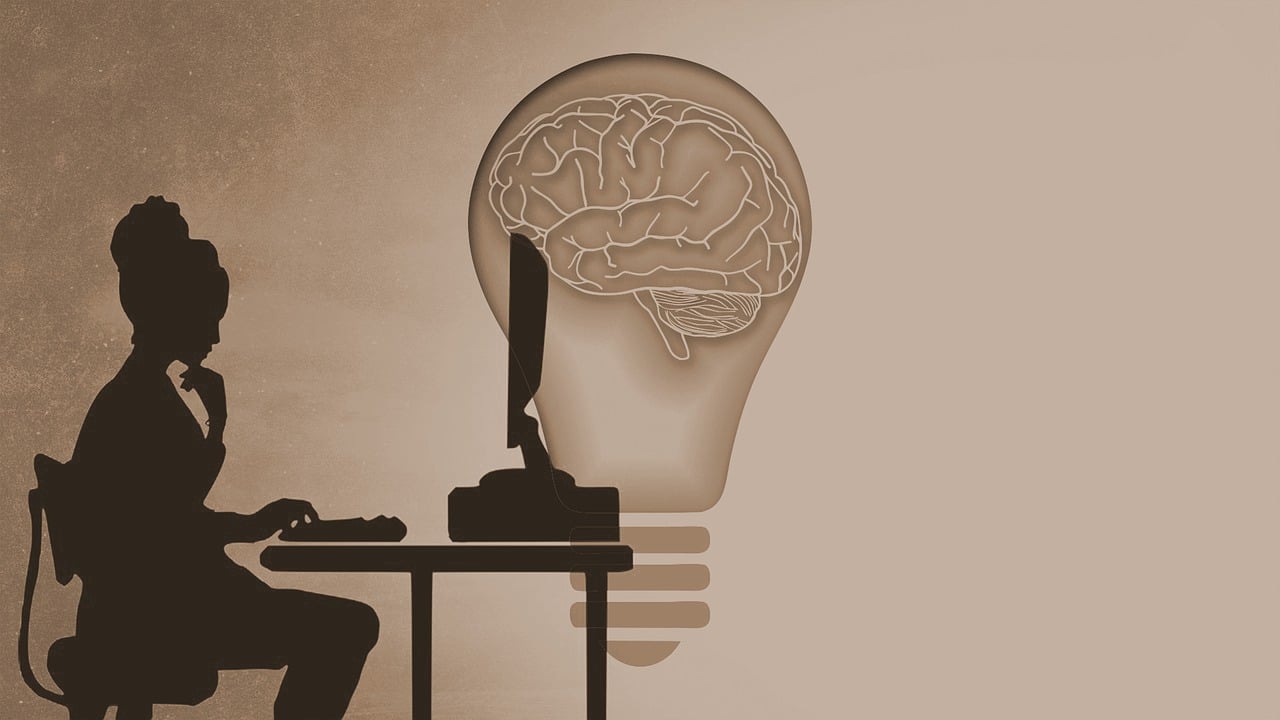
Out of the three sections of the LSAT, the Logical Reasoning section is the one whose skills and strategies you’ll use every day, whether or not you become a lawyer. The LR section asks you to analyze, criticize, and breakdown different arguments. Unlike something as impractical as Calculus 2, you will likely encounter an argument or two in your daily life—probably more so if you log onto Twitter or turn on your choice network news channel.
In the spirit of helping you understand why you should pay attention in your LSAT class and to help you in your next Twitter-war, we’re taking basic logical reasoning skills and applying them to arguments that we find across the internet, from social media to CNN and Fox News, in our new series, Logic Fails. Every week, LSAT tutor Robert Seaney scours the interwebs, forums, and comment sections to find the craziest and illogical arguments he can find in the realm of politics, entertainment, sports, and pop culture. Then he’ll analyze them as if they were written by the powers-that-be at LSAC and explain what type of argument or example of an LSAT fallacy it is.
If you prefer to hear Robert’s commentary—the likes of which the greatest late-night comedy legends could never hope to attain—we release a new episode of Logic Fails every week on the Blueprint LSAT Instagram. Follow us to never miss an episode!
If you come across an argument you’d like us to discuss, drop us a comment, send us a DM on Instagram, or use #logicfails on Twitter and Instagram! In the meantime, here are the week’s real-life Logical Reasoning examples dissected by Robert.
Logical Fallacies Week of September 21, 2020
Logical Fallacy Example 1: Supreme Court Judges
Supreme Court Justice RBG passed away this Friday after a long and incredible life and career. She’s one of those rare figures where if you divided her work into the first half with her time as a civil rights attorney, and the second half as an anchor to the liberal wing of the Supreme Court, they’re both independently Hall of Fame careers.
While we mourned the loss of a great American, her passing also incited a political scramble over whether to fill the Supreme Court vacancy just weeks before the presidential election. Of course, this conversation is particularly contentious because of its parallels to Obama’s nomination of Merrick Garland to replace Antonin Scalia in 2016. Then, Senate Majority Leader Mitch McConnell refused to allow the Senate to consider the nomination, hoping that the eventual Republican candidate for president — which he did not at the time expect to be Trump — would win and would thus get to appoint a seat that otherwise would be picked by Obama.
McConnell was not alone in the stance. Many other Republican senators were adamant about blocking Obama’s selection: consider these words from prominent senator Lindsey Graham.
P: McConnell and Senate Republicans insisted in 2016 that no appointments should be made in an election year
C: McConnell and Senate Republicans will insist in 2020 that no appointments should be made in an election year
Is this a cogent argument? Unfortunately, for a generation tragically idealistic from watching too much West Wing during too formative of years, it is important to remember that this is a logical fallacy. Specifically, it is a comparative fallacy: Comparing what principles someone like McConnell will call upon when those principles under the circumstances benefit him, vs what principles he’ll call upon when under the circumstances they do not benefit him, is setting you up to be misled.
And indeed, even back in 2019, well before Justice Ginsburg’s death, McConnell knew full well that he would make no effort to be consistent, as he announced, smiling.
Sure enough, within hours of Ginsburg’s passing McConnell announced his intention to fill the seat with a Trump nominee as soon as possible.
The LSAT issues many questions where the stimulus is a statement from a politician. The next I see an Implication Family question where I’m told to “assume that the politician’s statements above are true,” I might have a hard time taking that seriously.
Logical Fallacy Example 2: Joe Gaffes
This past week you likely saw some tweets and headlines like these criticizing Democratic presidential candidate Joe Biden for doing this. Biden has had his share of gaffes this election cycle, including some that seemed racially insensitive. Like these incensed headlines, we may consider the following argument:
P: This goofy Biden video
C: Insensitive, cringy appeal to Latin American voters
But if you dig a little deeper, and put the song and the clip in context, this criticism may be blown way out of proportion. What’s missing is a very important attendee who introduced Biden at that same rally: Luis Fonsi, the “Despacito” singer himself. Indeed, this important omission was noted by an unlikely source, Senator Marco Rubio, on Fox News.
The finger-wagging accusations of pandering to Floridian Latino voters — probably fallacious.
Logical Fallacy Example 3: Welcome Back, Football!
Finally, after a win against the Miami Dolphins in Week 1, the Darth Vader of football, Bill Belichick, had a classically Belichickian exchange with this reporter.
The fallacy here is that, based on the premise that something like this global pandemic has never happened before, the reporter assumes that it must be the case that there is no comparison. We could label this a comparison fallacy, or an equivocation fallacy — we’re equivocating between an event with no precedent and an event with no comparison. If this fallacy was evident then I’ll say the same to you that Belichick said to the reporter: Practice.
Logical Fallacies Week of September 7, 2020
Logical Fallacy Example 1: Benefits of Exercise
I like to have movie soundtracks playing while I study, so when a shirtless meathead hopped in and interrupted my Hans Zimmer on Youtube to advertise his new workout plan I was appalled. His ad referenced a study that found higher rates of testosterone in people who exercise more. Now this sounds legit based on my limited recollection of the endocrine system from 8th-grade biology, but let’s consider an argument of the following form:
A correlation is observed between exercise rates and testosterone levels. Then, a conclusion is spuriously formed that exercise raises your testosterone — that A causes B.
What alternative interpretation of this causal sequence should we consider? Given this established correlation, we should think about whether it may not actually be A that’s causing B, but rather B causing A! In that case, people with higher testosterone levels may be feeling more inclined to go exercise.
Logical Fallacy Example 2: Mail-In Voting
Let’s now consider an exclusivity fallacy in the following tweet:
Let’s put aside for a moment the dubious nature of these claims of voting fraud. The suggestion here is that the courts changing mail-in voting is the ONLY way to avoid a corrupt election. Which should lead us to think: Are there not other ways? For example, an independent third-party audit, or a meeting of each state’s Secretaries of States to ensure a secure election? Because this argument excludes other legitimate possibilities, it’s fallacious.
Logical Fallacy Example 3: Fantasy Football
Another exclusivity fallacy since I’m a little salty here:
The Kansas City Chiefs’ new rookie running back Clyde Edwards-Helaire was the worst kept secret in terms of fantasy football sleepers this year. And with the eighth pick in my draft, I just missed him.
After his exceptional game on Thursday, I’m trying to make a case of a sour grapes that Edwards-Helaire is not actually that great. Maybe he’s just a product of the Chief’s offense.
After all he’s got the best tight end in the league frightening outside linebackers in Travis Kelce, the fastest player in the league in Tyreek Hill clearing players out of the box, and then he’s got a magician in Patrick Mahomes pushing the ball downfield and making defenders respect the pass even on a broken play.
So is it fair to conclude based on Edwards-Helaire’s performance that he’s elite? Or might that be excluding other relevant environmental considerations? As far as I’m concerned, both his draft value and my draft order, are fallacious.
Logical Fallacies Week of August 30, 2020
Logical Fallacy Example 1: Sneezing in Public in 2020
The Causal Fallacy is easily the LSAT’s favorite. As many of you are aware, there are three ways to strengthen a causal argument:
- No Cause; No Effect
- Same Cause; Same Effect
- Eliminating Alternative Causes
Now you can memorize these, certainly, but throughout your LSAT study it’s better to make everything as intuitive as possible. In that interest, let’s contemplate an experience you’ve probably had where you put each of these three methods to practice, without even realizing it.
Let’s say you walk into the office, and notice a buzzing sound that appears to be coming from the lightbulb. One might conclude:
P: buzzing sound seems to be coming from the light
C: light is causing a buzzing sound
And how might one test this interpretation? How could one strengthen the argument that the light is causing the buzzing? Well naturally, you’d try flipping the light switch off: No cause. And if the buzzing stops too? Then No Cause; No Effect — the argument is strengthened. Want to be even more sure? Flip it back on and look for Same Cause; Same Effect. To leave no stone unturned: check that there’s no plausible alternative causal explanations, like a fly or something buzzing at the window nearby.
With our Causal Argument assessing skills newly refined let’s analyze the following causal argument:
P: Just sneezed in a grocery store & everybody looked at me like I murdered someone.
C: I guess sneezing is banned now
Is sneezing banned? Or what might suffice as an alternative explanation for the looks from ? Might it… perhaps be the global pandemic?
Logical Fallacy Example 2: Questionable Authority
On September 2, President Trump made the following statements to reporters, most notably (for our purposes): “This was a firsthand account..maybe they’ll speak with you, maybe they won’t.”
This is an appeal to a questionable authority fallacy. You’ll find many presidential examples, such as this one here where Trump claims that “America might be testing too much.”
As ridiculous as these arguments sound, you will see them on the LSAT: For example, you may have encountered similar questions where a medical doctor opines on something like weather patterns: he’s got the expertise, sure, but is it in the field he’s offering his opinion on?
Logical Fallacies Week of August 23, 2020
Logical Fallacy Example 1: Melania Ad Hom
As many of you are aware, the RNC concluded last night with much fanfare and fireworks – lots of fireworks, over the White House, for several minutes, potentially in violation of the Hatch Act. But I’d like to call attention to a tweet tweeted about First Lady Melania Trump on Tuesday, shortly before her RNC speech. Click the link to see it!
Now the format to this argument is unorthodox, to be sure – drawing its syntactical inspiration from the jacket Melania wore on her way to observe an immigrant child detention center in Texas in 2018.
But if we’re assessing the logic, then ultimately it suggests as a Premise that because of her characteristics, because of who she is and what she’s done in the past, we should not care what Melania Trump has to say.
Any guesses as to what fallacy is committed here? Your hint is that it’s the most fun, and perhaps most pompous, to say aloud.
It’s an example of an Ad Hominem fallacy, which translates from the Latin to “against/attacking the man (or in this case the woman).” This type of fallacy occurs when someone attacks the person instead of attacking his or her argument. Melania Trump cannot just be dismissed for who she is — it is possible that she might have something interesting to say at the RNC. After all, Michelle Obama just provided her fresh content to plagiarize last week.
Logical Fallacy Example 2. Luka Doncic Temporal Fallacy
This past week also saw a new basketball player crowned as the greatest of all time — at only age 21. With only three seconds on the clock, Luka Doncic, a Slovenian guard for the Dallas Mavericks, crossed over, pulled up – y’know what, just roll the tape:
Incredible. And, of course, the praise started to roll in. So much so that I found myself inclined to buy it! But then, of course, I remembered the temporal fallacy, and that Luka’s past performance is not a reliable predictor of his future performance, and certainly not of his whole career. Sure enough, his performance in the following game appears to have regressed towards the mean.
If you need more help with Logical Reasonings, you’ve come to the right place! All Blueprint students get access to 8500+ real past LSAT questions and 22 proctored exams. You’ll get all the LSAT practice you need with all the insight of Blueprint’s powerful analytics to help you identify your strengths and weaknesses. Learn more about prepping for the LSAT on your schedule with Self-Paced or to view our latest Live Course class schedule!
<!–[if lte IE 8]>
<![endif]–> hbspt.cta.load(7934320, ‘d1acf808-f23a-4ca3-8901-efe84c5ed084’, {“region”:”na1″});
hbspt.cta.load(7934320, ‘d1acf808-f23a-4ca3-8901-efe84c5ed084’, {“region”:”na1″});





